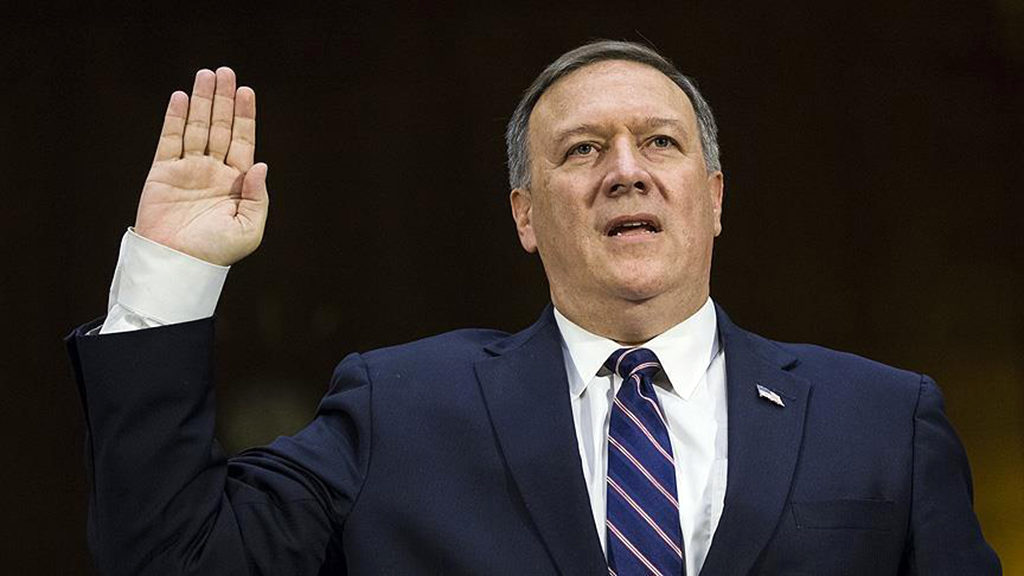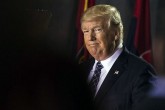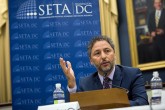With the change in the Secretary of State position in the U.S., questions emerge about the possible changes in U.S. foreign policy in critical areas. Many in Washington, DC consider Pompeo a significant game changer, partly because of his close rapport with U.S. President Donald Trump, partly due to his frequent meetings with him in intelligence briefings, and partly because of his strong views in several issue areas including the Iranian nuclear deal that he has expressed during his tenure at the U.S. Congress. In the analyses that were published in the last few days, there have been significant projections, including a more hawkish approach towards Iran and potential progress in the North Korean talks, due to CIA’s heavy involvement in back channel diplomacy there. Some are also expecting a period of damage control in the decline of the influence of the State Department in foreign policy decision-making and implementation. Those who considered Tillerson among the least successful Secretaries of State in regards to keeping up the morale and impact of the agency, argue that Pompeo can retrieve the lost influence of the department.
The future direction of U.S. foreign policy following this change has also become a source of concern in Turkey. The downward spiral trend of Turkey-U.S. relations had reached to one of the lowest points in the last few months. And the damage control attempts of the U.S. administration in February played a critical role in pausing this trend. Especially following Tillerson’s meeting with President Recep Tayyip Erdoğan and his statements the following day in a press conference generated some optimism of opening of a new page among some observers in Turkey-U.S. relations. Since then and the week before last week a delegation from Turkey visited Washington, DC to discuss significant issues pertaining the recent crisis in bilateral relations and another meeting was scheduled between Tillerson and his Turkish counterpart Mevlüt Çavuşoğlu. Last week it was announced that the meeting between top diplomats was cancelled due to the departure of Tillerson. However it was also reported that another meeting at undersecretary level is being planned between two countries. Now in the midst of this busy schedule of diplomatic meetings there are questions regarding U.S. foreign policy with Pompeo as its top diplomat.
The first question is, will Pompeo continue Tillerson’s attempt to fix bilateral relation between two countries. Tillerson’s trip was considered in Turkey as a representation of commitment on the part of the U.S. to resolve the emerging crisis. The fact that in the joint statement there were a wide variety of issue areas mentioned as a potential areas of cooperation was interpreted as a step towards re-strategizing relations between Turkey and the U.S. Will Pompeo demonstrate the same level of sensitivity in relation to Turkey? Since the announcement there were two different sets of arguments presented about this. First of all, some referred to the earlier tweets and statements of Pompeo when he was still in Congress to demonstrate that he may be less sensitive when it comes to relations with Turkey. However a second set of arguments that indicated the fact that Turkey was the first country that he visited after being appointed as the head of CIA emphasized a potential continuation of the mechanisms that were established in Tillerson’s last visit. If Pompeo is willing to improve relations with Turkey at such a critical juncture, he has to underline this intention in the early stages of his tenure and preferably give a message as soon as possible signaling this intention.
Following this, of course Turkey will be watching closely his confirmation hearings and his attitude towards in critical issue areas. His approach towards the partnership between the U.S. and People’s Protection Units (YPG) will be one of the critical issue areas. In the last months of Tillerson’s tenure a division became more visible between Tillerson and U.S. Central Command (CENTCOM) in regards to the U.S. relations with the YPG. In his conversation at American Enterprise Insititute, then Director of CIA, Pompeo also recognized that the partnership with the YPG is resulting in a cost in regards to relations with Turkey. However he did not mention anything about his perspectives about the future of this “temporary, tactical and limited” partnership with the YPG. He only mentioned the increasing need and attempt to fix the relation with the Sunnis in the region. At this point it is not clear how he will handle this critical issue as a secretary of state.
In addition to that it is not clear what Tillerson’s Syria strategy will be, which he announced weeks before his departure. It is important to remember that the strategic divergence between Turkey and the U.S. in regards to Syria emerged following tactical divergences on the ground. The Syria strategy of the U.S. will be an important determinant of the future of Turkish-U.S. relations as well. It is not clear if Pompeo has any strategy in regards to Syria. If the current tactics continue to shape the Syria strategy of the U.S. and if CENTCOM continues to insist on working with the YPG, it will be hard to establish a working relationship between two countries in Syria.
In all these issue areas, clarity from Pompeo and the public messages of the State Department will determine the future direction of bilateral relations. As it was expressed previously in this column, the lack clarity and confusion in regards to U.S. intentions generated great mistrust towards the U.S. in Turkey and among other U.S. allies. Thus, early signals from Pompeo will be critically important to continuing the current pause in the crisis.
[Daily Sabah, 19 March 2018]
In this article
- Opinion
- 2018
- Daily Sabah
- Donald Trump
- Islamic Republic of Iran
- Middle East
- Mike Pompeo
- People's Protection Units (YPG)
- PKK - YPG - SDF - PYD - YPJ - SDG - HBDH - HPG - KCK - PJAK - TAK - YBŞ
- Recep Tayyip Erdoğan
- Sunni
- Syria
- Syrian Civil War
- Syrian Conflict
- Syrian Crisis
- The President of the Republic of Türkiye
- Turkish Foreign Policy
- Turkish President
- Turkish-American Relations
- Türkiye-US Relations
- Türkiye's Foreign Policy
- United States (US)
- US Foreign Policy
- US President



